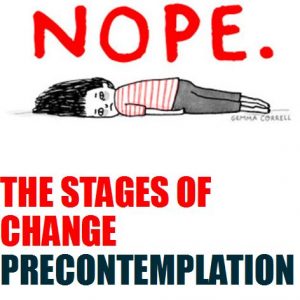2019 Tip of the Month
December 2019 “Tip of the Month”
Click here for December’s Tip of the Month (MS PowerPoint) CARVEDHAM
November 2019 “Tip of the Month”
Click here for November’s Tip of the Month (MS PowerPoint) CARVEDHAM
October 2019 “Tip of the Month”
The Stages of Change …. Relapse
Relapse in the Transtheoretical Model specifically applies to individuals who successfully quit smoking or using drugs/alcohol, only to resume these unhealthy behaviors. Read more about … The Stages of Change Relapse
“I was clean for 10 years, then I drank.” “I fell off the wagon again.”
What relapse statements have you heard recently?
The Stages of Change Relapse Scenario
September 2019 “Tip of the Month”
The Stages of Change … Maintenance
People at this stage changed their behavior more than 6 months ago. It is important for people in this stage to be award of situations that may tempt them to slip back into doing the unhealthy behavior — particularly stressful situations. Read more about … The Stage of Change Maintenance.
The Stages of Change Maintenance Scenario
August 2019 “Tip of the Month”
People at this stage have changed their behavior within the last 6 months and need to work hard to keep moving ahead. These participants need to learn how to strengthen their commitments to change and to fight urges to slip back. Read more about … The Stages of Change Action
The Stages of Change Action Scenario
July 2019 “Tip of the Month”
The Stages of Change … Determination (a.k.a. Preparation)
People at this stage are ready to start taking action within the next 30 days. They take small steps that they believe can help them make the healthy behavior a part of their lives. For example, they tell their friends and family that they want to change their behavior. Read more about … The Stages of Change Determination
The Stages of Change Determination Scenario
June 2019 “Tip of the Month”
The Stages of Change … Contemplation
At this stage, participants are intending to start the healthy behavior within the next 6 months. While they are usually now more aware of the pros of changing, their cons are about equal to their pros. This ambivalence about changing can cause them to keep putting off taking action. Read more about … The Stages of Change Contemplation
The Stages of Change Contemplation Scenario
May 2019 “Tip of the Month”
The Stages of Change … Precontemplation
Not Ready …. People at this stage do not intend to start the healthy behavior in the near future (within 6 months), and may be unaware of the need to change. People here learn more about healthy behavior: they are encouraged to think about the pros of changing their behavior and to feel emotions about the effects of their negative behavior on others. Read more about … The Stages of Change Precontemplation
The Stages of Change Precontemplation Email
April 2019 “Tip of the Month”
LSI Scoring Mechanics: If/Then Rules
IF Then Rules Scoring Scenario
IF_Then Rules Scoring Scenario Answers REV
March 2019 “Tip of the Month”
LSI Scoring Mechanics: Risk Scoring vs Protective Rating
REVISED LSI Risk and Protective Scenario_Practice
LSI Risk and Protective Scenario_Answer
LSI Risk and Protective (video)
February 2019 “Tip of the Month”
LSI-R Time Frames
LSI Scoring Mechanics:
There are three scoring mechanics:
- LSI Time Frame,
- Risk Score and Protective Rating
- If/Then Rules
LSI Time Frame: Restricts answers/information to a period of time. Answers are valid only if they address the situation in that time frame. Answers that do not follow the time frame are deemed an “Insufficient Probe.”
LSI Time Frame Scenario Practice Document
REV LSI Time Frame Scenario Answers
Jan uary 2019 “Tip of the Month”
uary 2019 “Tip of the Month”
Prioritization
Prioritizing is a technique designed to involve the client in the decision-making process. Essentially the client is asked to consider the LSI-R Feedback provided to him or her and to choose the starting point for change. This is perhaps the most simple of all motivational strategies and yet it is one that many professionals fail to use.
After discussing with the client where they would like to start first, you will target the behavior that needs to change and begin to build your case plan.
Prioritization Practice Instructions




